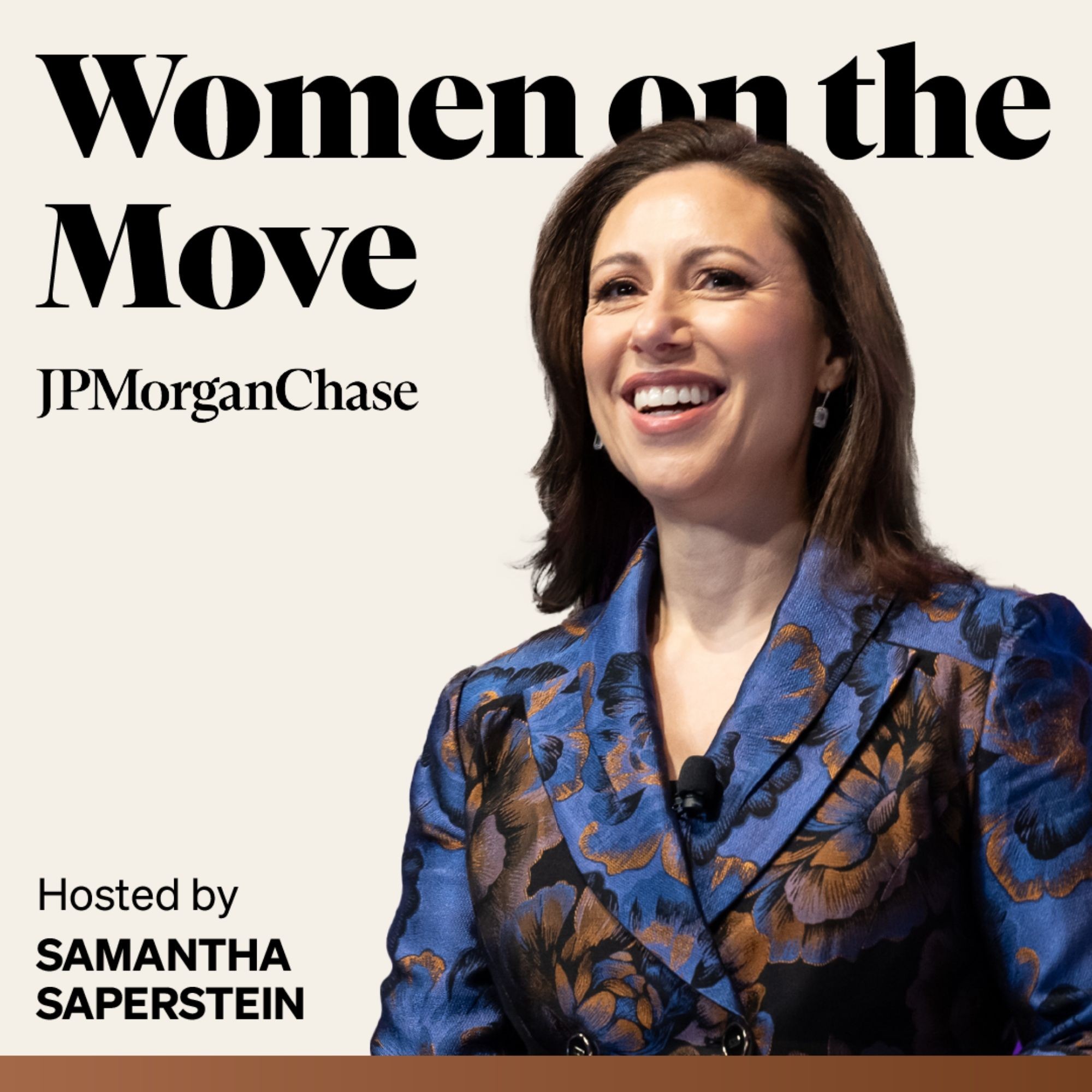Episodes

Thursday May 25, 2023
Jill Koziol, co-founder of Motherly, on empowering today’s moms to thrive
Thursday May 25, 2023
Thursday May 25, 2023
In this episode of Women on the Move, host Sam Saperstein sits down with Jill Koziol, co-founder of Motherly, a well-being destination. Jill co-founded Motherly in 2015 with the goal of empowering mothers to thrive.
“We felt like there were so many misconceptions about what it meant to be a modern mother back in 2015, and we knew that there was this tsunami of parents that were millennials that were about to become parents that were digitally native, super educated and very diverse, and we wanted to truly redefine what it meant to be motherly,” she tells Sam. “The definition is to be nurturing and caring and it really connoted this like martyrism approach to motherhood, and our lived experience was that motherhood gave us new superpowers and that we could be caring and ambitious, we could be strong and nurturing, and we wanted to really give a much more holistic approach to that.”
Drivers of change
As a co-founder, Jill’s approach was to look not at trends but at what she calls drivers of change, and to leverage a design thinking approach that got her out from behind her own identity as a mom. She says she and her co-founder identified three such drivers. The first is that the millennial generation that were having children in 2015 were the first generation in history to be digital natives when they become parents—and legacy brands were not speaking to them in a way that resonated with them. The second driver was that this generation is also the first one in which women are more educated than men. And third was the knowledge, based on demographic trends, that this was going to be the generation that shifted demographics in the United States: this generation was giving birth to the most diverse generation in history.
Jill says this approach was informed by her background as a strategy consultant, as well as her lived experiences as a mother, military spouse, and a daughter of an entrepreneur. She had young children when her husband was stationed abroad in the military, and soon after he left the military and started business school, she started her first company where she and a partner invented, patented, and brought to market a baby goods product called the Swingy.
By the time she started Motherly in 2015, Jill had a clear idea of the company culture she wanted: a workplace where women could thrive without having to make a choice between family and work. From the beginning, Motherly’s offices were 100 percent remote, cutting out lengthy commutes, and she encouraged her staff to have difficult conversations with their partners about sharing childcare and other duties.
Expanding to empower
Jill also discusses the results from Motherly’s latest Motherhood survey. The annual survey, now in its sixth year, is the largest statistically significant study of its kind of U.S. mothers. “The number one kind of key finding from this year’s 2023 state of motherhood survey was that the lack of and costs of childcare are continuing to create financial stress and are holding moms back from the workforce,” she tells Sam. “We saw that was the top reason cited why mothers are choosing to stay home with their children. We saw that 18 percent of mothers in our sample size this year chose to either leave the workforce or change jobs. And the number one reason that they did that was to stay home with their children, about 28 percent.” She says that bringing these women back into the workforce is an “economic imperative because, as we've discussed, today's mothers are the most educated cohort in the peer group.”
Looking forward, Jill says Motherly will be offering additional free resources. “This is something I'm really passionate and excited about,” she tells Sam. “I always knew that education was a really important social determinant of health, and when we launched Motherly, we knew that we were targeting this super educated demographic and that that was how we were going to grow with this new brand and this new perspective and voice. But 50 percent of today's children are born on WIC and Medicaid, and we are not going to achieve our mission of empowering mothers to thrive if we are only offering resources like our classes to the mothers that can afford that have disposable income to do it.”
Full transcript here

